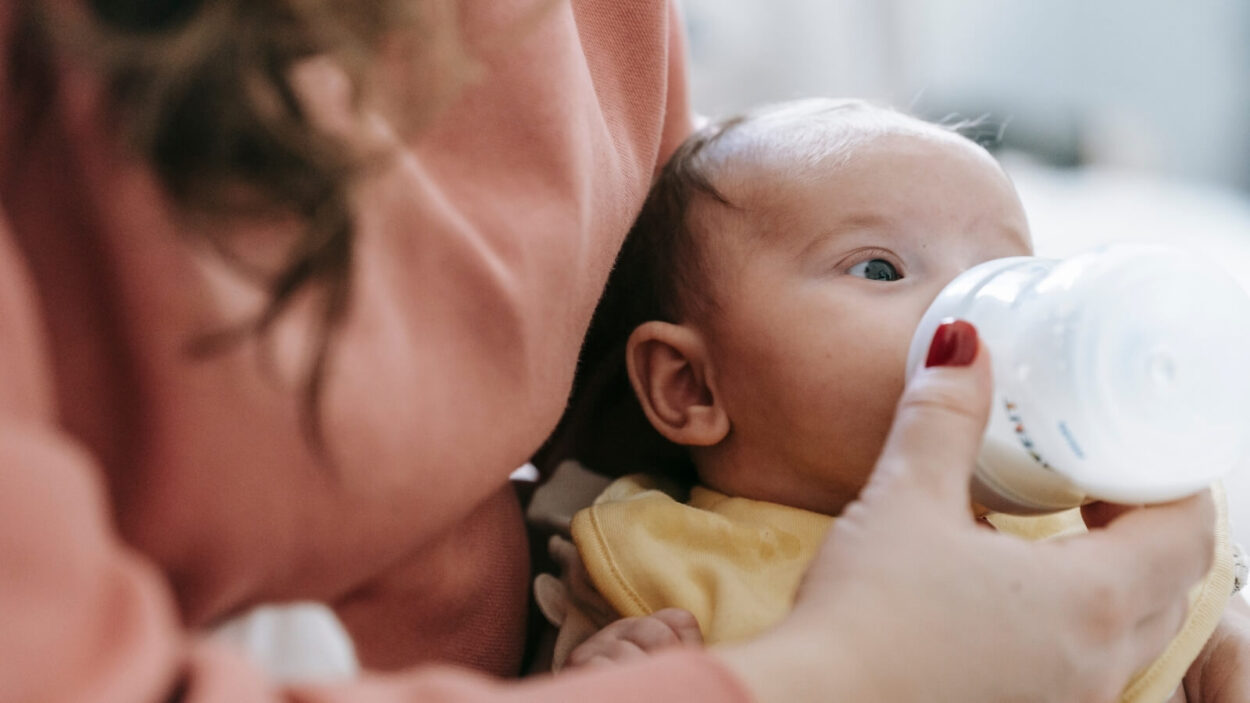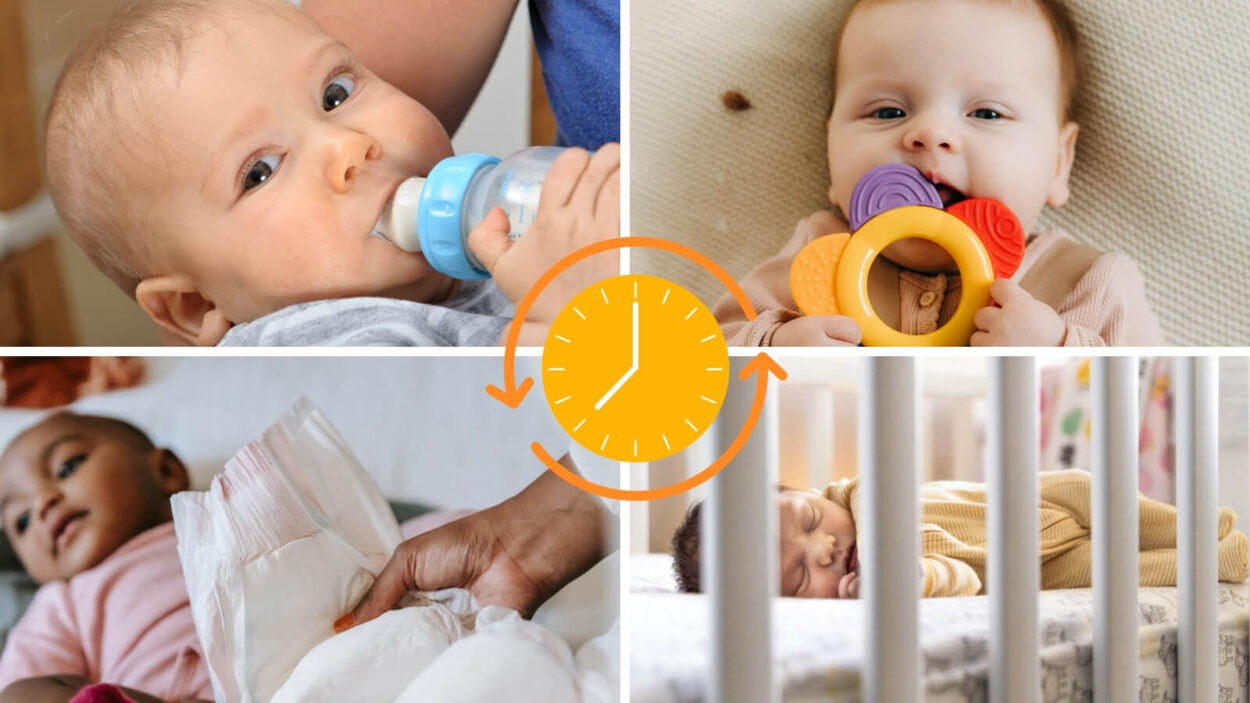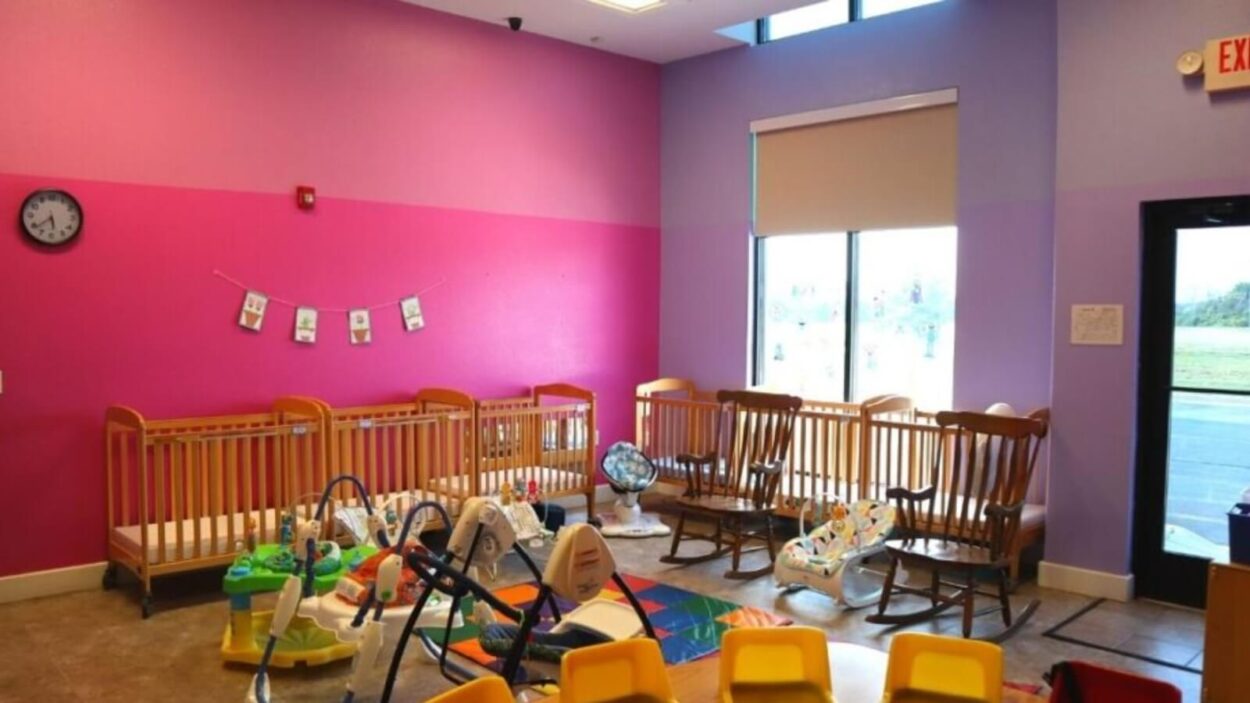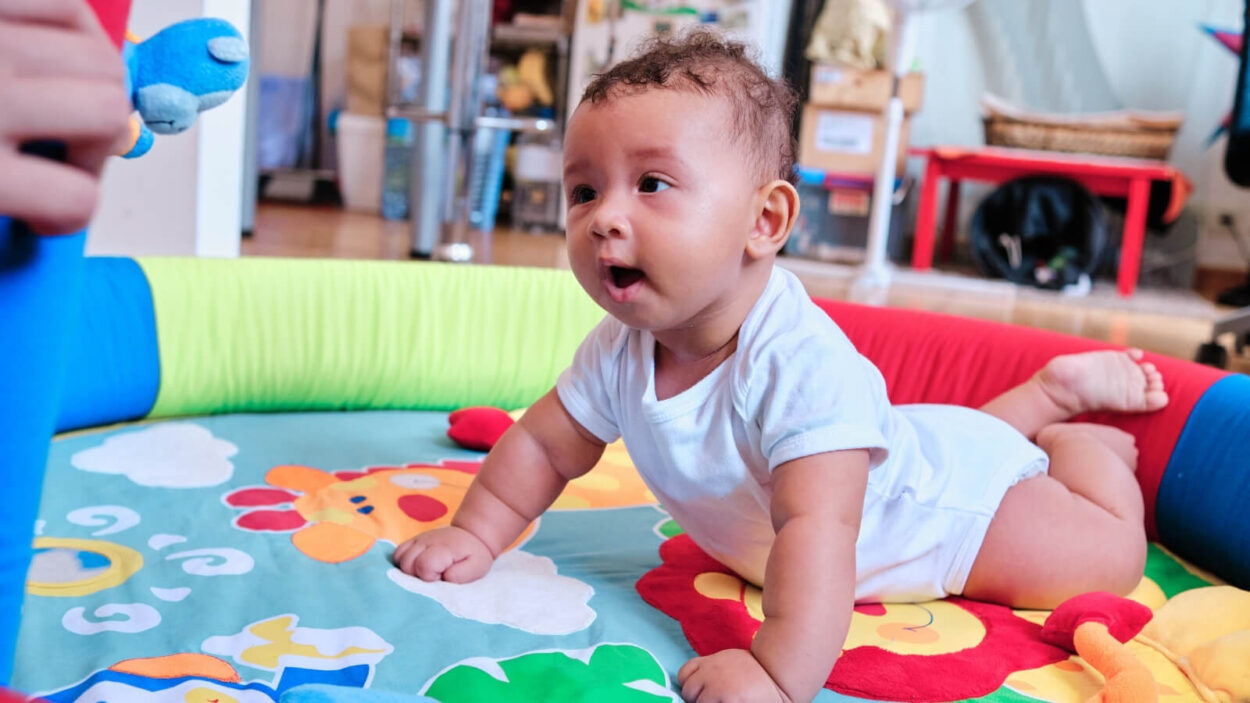Many parents with young children struggle to decide when to send them to daycare. Are they too old? Too young? When’s the best time? Well, here at Cornerstone Academy, we take children as young as 6 weeks old.
This may come as a surprise to some, and that’s okay! Many parents feel that at 6 weeks, it’s too soon to have someone else watch their children all day. While those emotions are normal (And just a sign of a loving, involved parent!), that doesn’t make them necessarily right. Sending your infant to daycare can be beneficial to both the child and you, the parent. Read on to learn more about the many advantages of enrolling your infant in daycare.
Why Should You Bring Your Infant to Daycare?
1. Gets Them Used to Other Adults

The bonding that a baby has with their mother and father at the beginning of their life is irreplaceable and lasts a lifetime. However, as infants start to get a little older, they need to start to learn that other adults do exist out there in the world. Socializing infants with other adults early on can help your children be less clingy and more accepting of meeting new people in the future.
This is particularly helpful if you plan to continue having your child in daycare long-term. Your child will learn to trust their daycare teachers, making the transitions they will face moving from room to room as they get older a lot easier. When they eventually reach school age, they will already be more than ready to meet new teachers and will likely have a better experience.
In fact, studies conducted by the National Institute of Child Health and Human Development have found that children in daycare or early childhood education programs tend to form more positive relationships with adults both inside and outside of their families (when compared to those primarily cared for at home).
2. Socializes Them With Others
While most parents know that socialization is good for their toddlers and older children, what many parents don’t know is that infants can benefit from it as well. Socialization truly does begin at birth! Babies are wired to connect with others, and even if it doesn’t seem like they’re doing anything but sitting and watching, they are socializing in their own way.
By having your infant share a space with others in daycare, they are learning to recognize feelings and expressions from those around them—and not just from other infants. They learn these things from their daycare workers, too.
Again, it might not seem like a big deal for a 12-week-old to socialize, but starting a child then, versus starting them around 6-9 months, can really make a big difference in their development and future social skills. These are competencies they can carry with them the rest of their lives!
3. Sets a Daily Routine

Research has shown that a regular routine can support healthy social-emotional development and self-regulation skills in children. However, getting babies and infants familiar with a routine can be a difficult thing to do. Every child is different, which means every child will get used to a schedule of meals, naps, and dirty diaper changes at their own pace. For a busy parent with lots of changes in their day, this can make a routine difficult to set.
But that’s where daycare comes in! When you bring your child to daycare, you are bringing them into a very structured and routine-driven environment. At Cornerstone Academy, we work with parents to help set the foundation of your little one’s schedule, which you can then carry over into your home life. They’ll learn to eat, sleep, and play at certain times of day, taking the burden off you to try to instill.
4. Builds Their Immune System
Nobody likes to see their little one get sick. Unfortunately, due to their newly developing immune systems and desire to constantly put things from the floor into their mouths, infants tend to fall ill frequently. In fact, according to Parents.com, it’s normal for infants to experience 6 to 12 infections during their first year, lasting an average of 7 to 10 days.
Sending them to a daycare with other illness-prone children may seem counterintuitive, but it can actually help build stronger immune health over time. In fact, studies have found that infants who attend daycare are less likely to get sick once they reach kindergarten (when compared to kids who were cared for at home), and that this immunity continues with them throughout their elementary school years.
5. Helps You (The Parent!)

As a parent, it’s okay to get outside help! As much as you wish you could do everything on your own, taking care of an infant can be hard (but rewarding)—especially if you have other young children, have a full-time job, or don’t have extended family or friends to babysit. Sending your infant to daycare will allow you to go back to work, which, for many families, is a financial necessity. (In fact, according to the Pew Research Center, in nearly 50% of two-parent families, both adults work full-time.)
Even if you don’t work, it’s okay to want a break to deal with other life responsibilities, or to simply rest and recuperate. Taking time to take care of yourself isn’t selfish. It means that you can have the energy to be more involved and present when your child is home. Even if you send your infant to daycare two days a week to let yourself catch up on errands or cleaning, getting that little bit of time back in your week can be a major stress reliever.
Contact Cornerstone for Infant Daycare

At Cornerstone Academy, we offer reliable infant daycare for children as young as 6 weeks old. They’ll experience individualized attention from caregivers, emotional enrichment, and lots of cozy nap time. We want to provide them with a safe and secure environment to grow!
If you’re interested in learning more about our infant program or have any questions, contact us today! We understand that it can be overwhelming to part with your little one, but we promise that your child will flourish thanks to the many benefits daycare has to offer.




